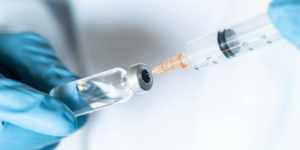Cases of Flu, RSV, and COVID-19 All Increasing
As families prepare to gather and then return from holiday celebrations over, a new wave of respiratory illnesses—including flu, respiratory syncytial virus (RSV), and COVID-19—has prompted outbreaks in the U.S., with 15 states experiencing a surge in infectious disease cases. To learn about how people should prepare in an effort to keep themselves and their families healthy, we spoke with MRIGlobal’s Dr. Gene Olinger, Chief Science Advisor.
What do you think is driving the recent increase in cases?
Respiratory infection patterns are changing to resemble the disease patterns that we saw before the COVID pandemic. They are predictable but highly variable year to year. During the COVID-19 pandemic, lockdowns, social distancing, and increased hand hygiene practices significantly reduced the circulation of respiratory pathogens. More importantly, immunity to the normally circulating pathogens was reduced during the pandemic and for a few years afterwards. The good news is that influenza and RSV have settled into more traditional patterns, while the influenza rate has actually been lower than expected. Population-level immunity following vaccination and infection wanes over time, while vaccine hesitancy is impacting distribution of diseases.

Does this mean that COVID-19 is now a seasonal respiratory disease like RSV and flu?
COVID-19 is now another respiratory disease that causes disease, hospitalization, and death among high-risk individuals. In fact, there are more than 18 viruses and five bacteria that cause respiratory infections, each with fluctuations based on the patterns of circulation, immunity, and transmission conditions.
If they haven’t already, should people get vaccinated against these diseases?
In the best-case, vaccination prevents disease, and in the worst case, it reduces the severity and length of illness. It is important for everyone to talk to their health care provider to understand the risks and benefits of vaccination. In some cases, your personal benefit may be low (for instance, a young adult in good health), but your ability to prevent the introduction of pathogens to your home and social setting may be the primary benefit to consider.
Do the three diseases have different symptoms?
People often use the words “sign” and “symptom” interchangeably. However, a symptom is something an individual experiences, while a sign is something a doctor, or other person, notices and can measure. The symptoms in each of these diseases can start very similarly, but then they can vary from person to person. It is often difficult to discern the differences, even for clinicians without a diagnostic tool. When the clinician observes many specific infections in the clinic, there is usually a clue as to what may be causing the disease in that population of patients.
Is there a single test available to determine the presence of these diseases?
There are very few home-use tests or tests that can detect multiple respiratory diseases. At the clinic level, multiplexed assays, tests that can test for different pathogens, are available. A focus has been on a diagnostic that can detect RSV, Influenza A and B, and COVID-19, which is being developed. There are assays that are respiratory syndromic diagnostic assays that test more than 20 organisms including viruses and bacteria that cause disease. These assays are usually used at the hospital level but are not widely available otherwise.
During the COVID-19 pandemic, it was recommended that people wear a face mask. As families gather, is that a best practice again?
Wearing a face mask is a practical method to reduce exposure, which is why the CDC director advised the public to wear them to prevent transmission. All the practices used during the COVID-19 pandemic remain applicable. These include appropriate social distancing, which can include avoiding large crowds when possible. Hand washing hygiene also remains a key step in breaking transmission.
GETTING STARTED AT MRIGLOBAL
Contact MRIGlobal for further information about our work with infectious diseases. Through an interdisciplinary approach, we provide scientific and subject matter expertise for the development of medical countermeasures research against specific threats, while expanding and accelerating the delivery of high quality clinical diagnostic products.
To discuss how we can help your project be successful, contact us today.
SIGN UP FOR OUR NEWSLETTER
Sign up for the MRIGlobal newsletter! It’s the best way to get the latest updates in the world of applied scientific engineering research delivered directly to your inbox.

